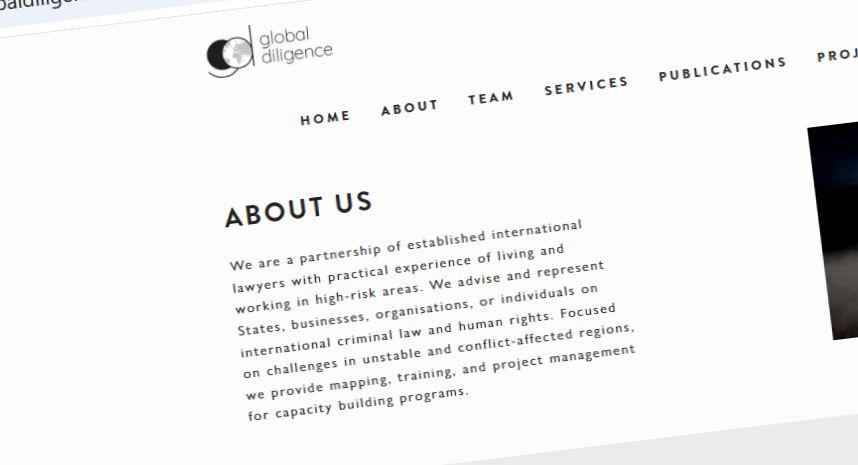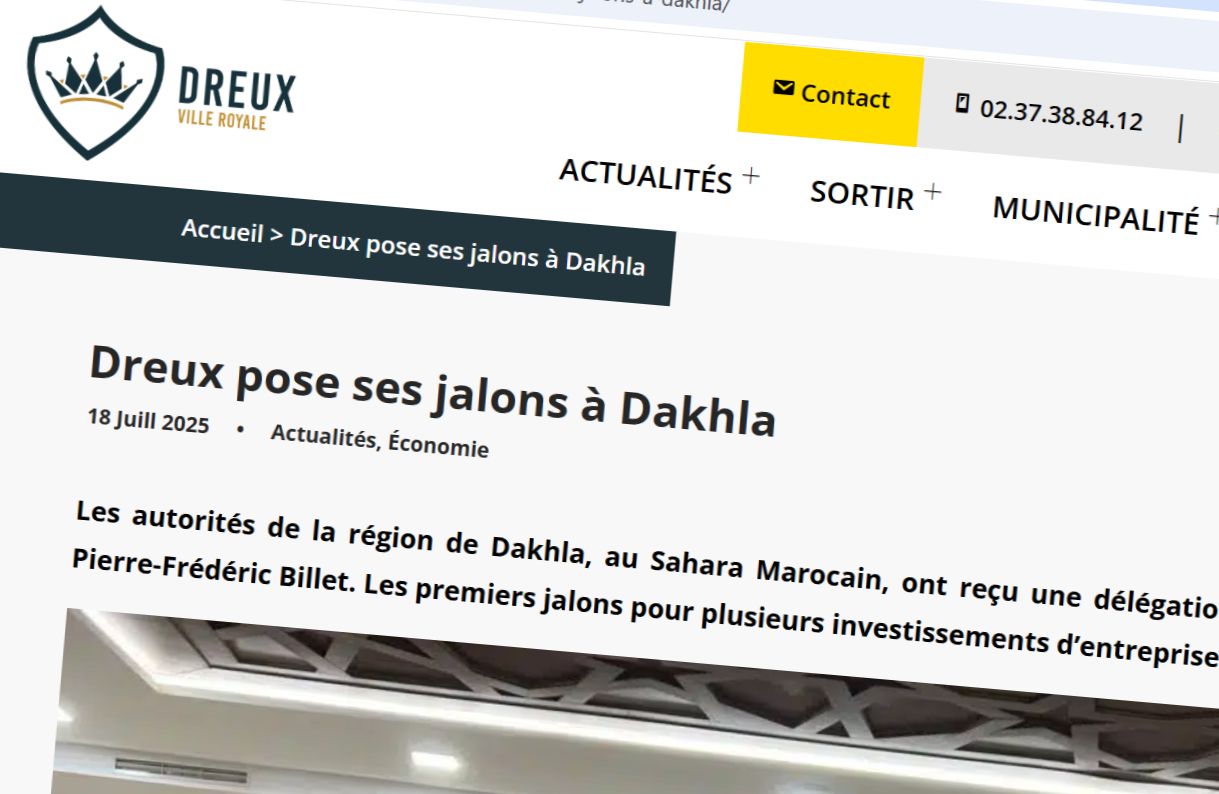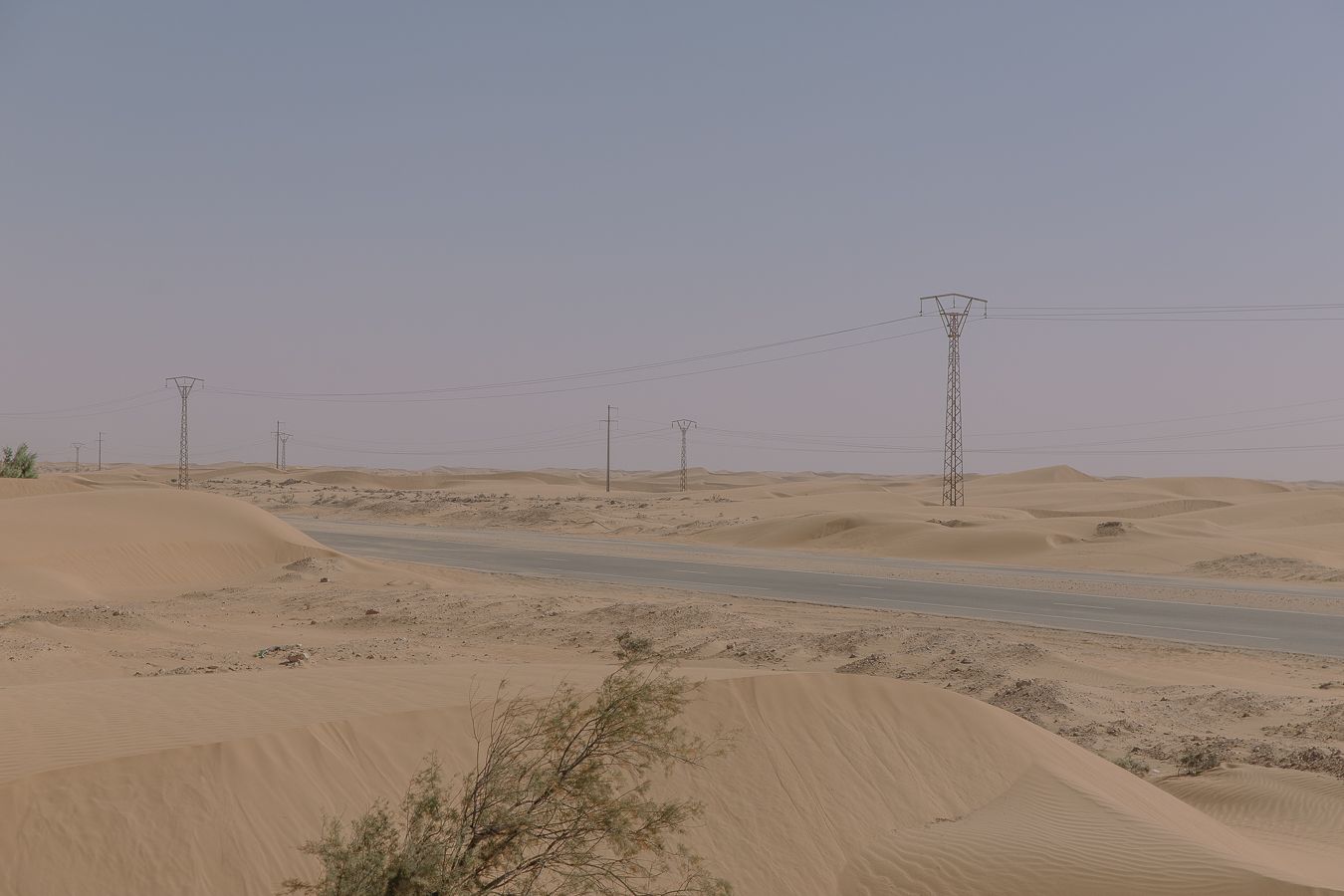Western Sahara occupation soon to electrify EU?

Germany, France, Spain and Portugal have signed a roadmap agreement with Morocco to work towards renewable electricity trade between Morocco and the EU.
Published 28 November 2016
"The present joint declaration cannot be construed as a source of legal obligations for the signatories, nor will it be subject to International Law", is the eerie final sentence of the "joint-declaration on the establishment of a Roadmap for Sustainable Electricity Trade between Morocco and the European Internal Energy Market", signed by Germany, France, Spain, Portugal and Morocco during COP22 in Marrakech. Read the three-page document, dated 17 November 2016, here.
In the declaration, the signing parties declare "their intention is to provide the conditions to make possible renewable electricity trade between Morocco and European Internal Energy Market". Accordingly, they indicate their willingness to develop the so-called SET roadmap (Sustainable Electricity Trade) and an implementable agreement "by the date of COP23".
The European Union eyes a 27% share of renewable sources in its energy mix by 2030. Morocco is showing more ambition, by setting the target of 52% by 2030 as envisaged in its national Renewable Energy Plan. A progressive integration of the energy markets could assist the EU in reaching its goal, seems to be part of the rationale behind the document.
But what the joint-declaration omits, is that a sizeable part of Morocco's projects that are to be implemented to reach that 52% goal, will be carried out in a territory that Morocco has brutally invaded in 1975 and kept under its yoke since: Western Sahara. If Morocco manages to proceed as planned, over a quarter of its wind and solar capacity will be derived from Western Sahara by 2020.
Often referred to as Africa's last colony, Western Sahara is considered a Non-Self-Governing Territory without an administering power. The territory is subject of UN led peace talks, and a UN mission is present on the ground. No State in the world recognises Morocco's claim to the territory, while the people of Western Sahara's right to self-determination - the right to determine the status of the territory and thus its resources - is universally acknowledged. Just a month ago, the UN Human Rights Committee called for the realisation of their right to self-determination and reiterated the need for the Saharawi people to exercise "their prior, free and informed consent to the realization of developmental projects and [resource] extraction operations".
In early November, WSRW published a report outlining Morocco's wind energy plans in Western Sahara. Investors as KfW and the European Investment Bank have stated that they would not provide funding for any such projects inside the territory. As a result, Morocco has now issued green bonds to finance the two solar plants it intends to construct in Western Sahara, in collaboration with a consortium led by Saudi firm ACWA Power.
The joint declaration states that MASEN is willing to provide the secretariat for the entire undertaking. MASEN is a Moroccan renewable energy company that is essentially state-owned, and - like the renewable energy sector in Morocco - controlled by the king.
At present, there are two ongoing court cases against the EU Council, instigated by the political representation of the Western Sahara people, over the inclusion of the Western Sahara territory in both the EU-Morocco trade deal and fisheries agreement.
News
Global Diligence defends operations on occupied land
The legal advisory firm Global Diligence, which presents itself as expert on ‘heightened due diligence’, misrepresents international law in occupied Western Sahara.
16 October 2025
French publicly-owned firm plans energy project in occupied Western Sahara
The French town of Dreux considers ignoring a ruling in the French courts and to engage with a controversial energy operation in occupied Western Sahara.
01 September 2025
Morocco pushes enormous green hydrogen plans in occupied Western Sahara
The Moroccan government has confirmed several green hydrogen projects totalling 20 GW of renewables and up to 8 million tonnes of derivatives - many planned in occupied Western Sahara.
11 August 2025
Morocco plans massive AI center in occupied Western Sahara
A 500 MW hyperscale data center for Artificial Intelligence is being envisaged in the occupied territory.
14 July 2025



